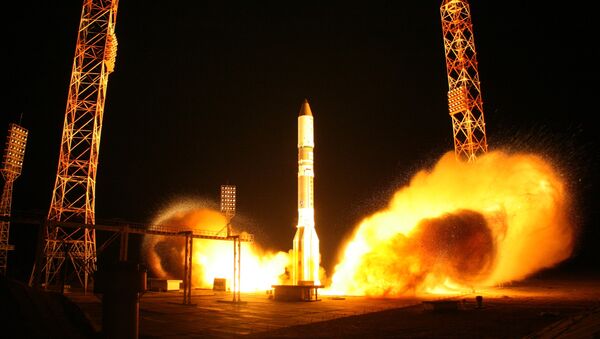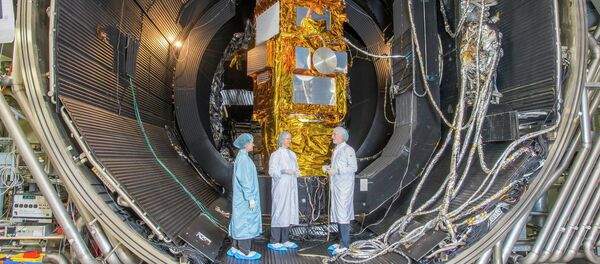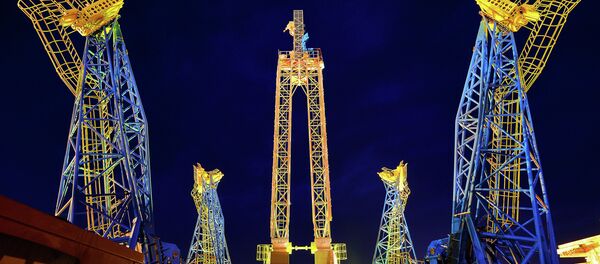He made the comments as the ESA and the Russian Federal Agency Roskosmos agreed to promote cooperation on sending two joint Proton-M rocket missions to Mars in 2016 and 2018, within the framework of the ExoMars project.
The deal was signed on the sidelines of the MAKS-2015 air show, which is currently underway in the Moscow suburb of Zhukovsky.
Speaking to Sputnik, Johann-Dietrich Wörner warned that the political crisis should not damage what he described as "reliable and trustworthy collaboration."
"Our cooperation is very reliable and very trusting. We know that we need each other when it comes to carrying out missions to Mars and the Moon. I am glad that we have such a relationship," Wörner said.
He stressed the importance of maintaining contact now that the political crisis between Russia and the West shows no sign of abating.
"In this critical situation, science, including space research, can serve as sort of communication bridge, which will be of paramount importance," he pointed out.
He warned against freezing the cooperation between Russia and the West with respect to space, which he said comes amid the process of globalization.
He was echoed by Roskosmos head Igor Komarov, who touted the ExoMarss program and said that the work of the space agencies stipulates their non-involvement in political issues.
According to Komarov, the launch of the Proton's first mission is scheduled for January 2016.




